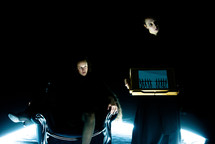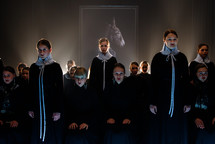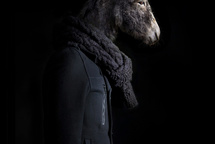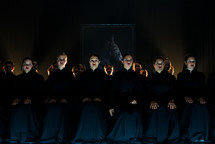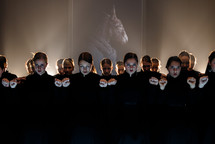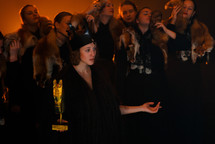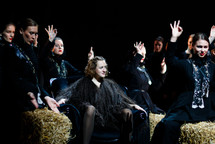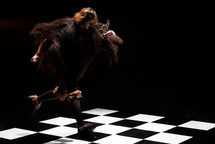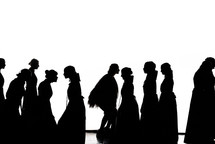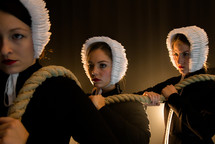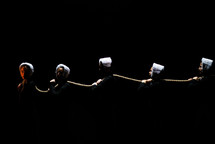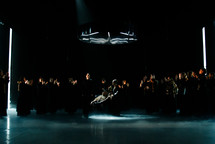Fortuna Won't Be Fauvel's Match!
Flattery, Avarice, Vileness, Variability, Envy and Lechery
Press
… music of timelessness – from choral monophony, contemporary polyphony, clusters -, contemporary movements, youthful fluid, creative maturity, virtue-less time performed and set to music …
Večer
… a distinctly modern and effective score radiates in a new light and leaves a far stronger trace than the already existing staleness of performing arts …
Večer
… music theatre which … is becoming a category, a phenomenon and a measure on its own …
Večer
… Carmina Slovenica is shaping a new aesthetics in Slovenia which is far better understood by the openness of abroad than at home …
Večer
… her projects are included in the Slovene art pantheon of the unforgettable …
Večer
… the synaesthetic effect of individual elements of this comprehensive work of art particularly intensive and original ...
Večer
… astonished at the ability of the young corpus, acting with confidence, mastering the challenging choreography, is verbally nimble and musically perfect …
Večer
… dramaturgical arc of the performance is incontestable, and the suggestiveness of scenes underlined by incredible abilities of young women-actors, performers, finest interpreters …
Večer
… Carmina Slovenica outlined a particularly glamorous music story … a brilliant performing body like no other in the world …
Dnevnik
… passionate and musically professional appearances included at times a particularly terrifying carnivalesque savageness … yet at times they were distinguished by more sensitive body gestures
Odzven

